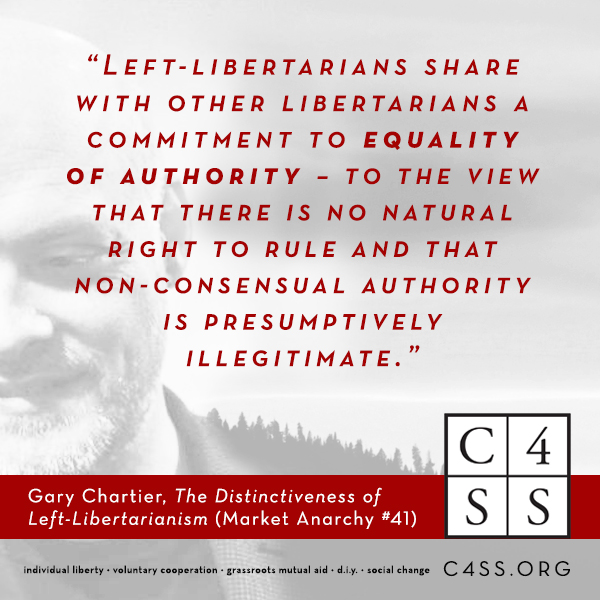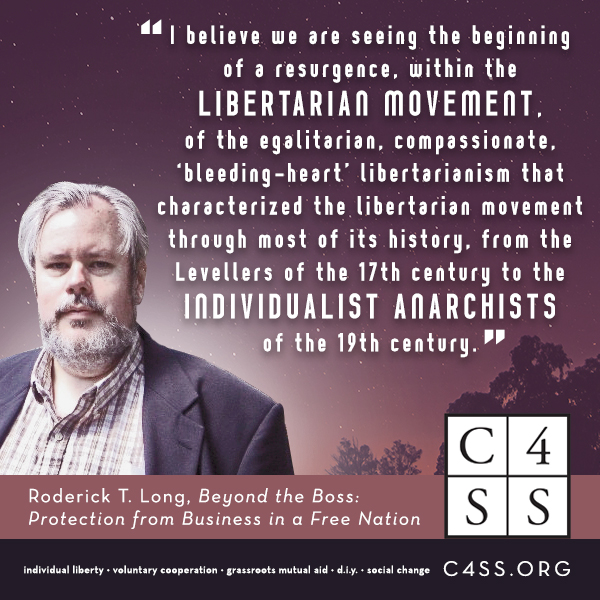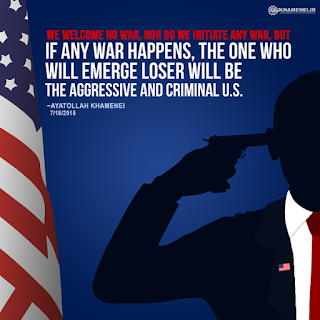Three and a half years ago I wrote an essay about why Americans should stop participating in the presidential election — either as voters, as supporters of one candidate or another, or as participants in the endless social media and conversational back-and-forths. In short, that they should pay as little attention as possible to the election campaign and should revel in and take pride in their ignorance of the horse race and the candidates and their “positions.”
A couple of days ago, a friend of mine posted this on her Facebook wall:
I feel bad because I feel like I should listen to everything they have to say but, I just had to turn off the Republican Debate. I just couldn’t handle it. Even while looking at pictures of puppies and kittens.
So I decided I should dust this essay off and polish it up a bit in the hopes of helping her and other people who feel guilty about ignoring politicians. This election is shaping up to be the best one in my lifetime not to vote in, so I hope my essay will ease many unnecessarily troubled consciences.
It’s still 2015, isn’t it? The presidential election is fifteen months off and the party conventions are still almost a year away. These days campaign season seems to never end. You’re probably already being inundated with tweets and status updates and comments and op-ed pieces forwarded from family members and blog posts and video clips of indignant pundits — almost all designed to deride one candidate or boost another.
There are some rare, mature, and sensible ones that urge you to carefully consider the important issues, resist the distortions of propaganda and the news cycle, and look at the big picture before you vote. But above all, to vote! Vote as if it were the most important decision you were going to make this year.
I hope you will indulge a different point of view. I’m going to urge you not to vote. Further, I’m going to ask you not to encourage your friends and family to vote for anyone, or at all. Even better, I’m going to suggest that you cultivate a studied ignorance of the candidates and their positions so that even if you were forced at gunpoint into a voting booth next November you wouldn’t have any idea which lever to pull. And not only that, but I’m going to tell you how, by (not) doing all these things, you can be of greater service to your country, your community, your loved ones, and yourself.
There are two main reasons why I expect you to follow this heretical advice. One of them is utterly rational, logical, and easily demonstrated: your vote is utterly unimportant to the outcome of the election, and whether you carefully consider your vote and cast it wisely or whether you just flip a coin in the voting booth or whether you instead make other plans entirely, the effect you have on who becomes president will be the same. It doesn’t matter for whom you vote in the privacy of the booth, and so there is no reason to become an informed voter, and indeed no good reason to vote at all.
The second reason requires a little more imagination but amounts to this: presidential elections are harmful, and they become more harmful the more that people care about them and the more attention they devote to them. Most anything else you can imagine doing with your time other than paying attention to politicians for the next year and change would be more beneficial to you, to your loved ones, and to your community.
Then there’s the dessert — almost the best reason of all: if you decide now that you aren’t going to vote in November, you can stop paying attention. You can let all of the squabbling rattle on without you, and you can ignore the impassioned partisans and the indignant commercials and the breathless commentators and your earnest and tireless relative who forwards everything. You’ll thank me.
Voting is Pointless
Your vote, should you fail to heed my advice and decide to cast one, will make no difference in the result of the presidential election. If you cast your vote for the candidate whose stated positions most closely match your views, whose image is most sympathetic to your self-image, who seems wisest and most well-advised — or if you devilishly succumb to a whim to do exactly the opposite — it doesn’t matter, because your vote will not make any difference in who becomes the president.
This is not because American elections are corrupt and error-prone, though certainly they are. True enough: because of poor interface design, the ease of malicious hacking, politically-motivated voter roll manipulation, and other such reasons, there is only a dim resemblance between the vote tally and the actual intended preferences of the voters. Also true: your well-considered, researched, intelligently-selected vote may easily be swamped by the haphazard votes of dozens of morons or by flipped bits in the slapdash voting machine or by snafus at the post office. It also cannot be denied that if the vote totals are by some chance close enough to matter in any important precinct (e.g. Palm Beach in 2000), the results will quickly be taken out of the hands of the voters entirely and left to the chad-wrangling of political operatives or partisan judges.
But these are not the reasons why voting is pointless. Even if none of these things were true, the sheer size of the electorate makes any individual vote mathematically worthless. Even if every vote were counted, only once, and actually represented the real, informed intention of a real, live voter, and even if every eligible voter were indeed permitted to vote, and even if the weird electoral college were abolished or replaced with something more sensible – even then, you would be wasting your time to vote.
Simply as a matter of scale, as the size of the electorate increases, the likelihood that any one vote will matter quickly, asymptotically approaches zero. At the current scale, at the width of the finest pen with which we can draw this asymptote, it is indistinguishable from zero.
But, you may be thinking, although my vote individually may not have any effect, our votes (you and me, and our right-thinking friends) in the aggregate just might – if the aggregate is big enough. If it is true that it is completely irrational and worthless to vote, and if rational people act on this knowledge, doesn’t that mean that our elections will necessarily be decided by the opinions of people who are too irrational, mathematically illiterate, or unwise not to refrain from voting? Can we risk that?
The answer to this objection is that, yes, tautologically, to the extent that our presidential elections are in fact decided by the expressed aggregate will of the voters, they are decided by the expressed aggregate will of those too unwise to know not to vote. No, we shouldn’t risk such a crazy thing, but we cannot change it by voting, because by voting you immediately become part of the problem you hope to solve.
It’s like looking at a sidewalk 3-card-monte game and saying to yourself that you’d better throw down a bet, because otherwise that unscrupulous dealer will be able to successfully con all those unsophisticated people who are playing without knowing the trick. If you play, you become the sucker.
But aha! Here is a reductio that beats my argument cold: “If my vote is so darned worthless, why are so many people spending so much time and energy and money trying to obtain it?” This is indeed a nut that needs cracking, but it will have to wait until the next section.
If participating in the electoral spectacle were merely pointless, I wouldn’t be writing this screed. Lots of things that people do aren’t really good for anything, and that’s nobody’s business but their own. However…
Voting is Harmful
If you put the dread judgment of mathematics aside, elections might be worth getting excited about if they were actually what they sometimes pretend to be: our way of choosing qualified people to take necessary and important policy-making and -enacting jobs, in such a way that those people best represent the considered judgments of the citizenry.
But these parody elections like the one being inflicted on us today are nothing of the sort.
For one thing, elections like these effectively select some of the worst people among us by perversely rewarding the sort of charming mendacity and amoral ruthlessness that characterize sociopaths. If you watch a political debate or stump speech or what-have-you, you’re watching an extended act of dishonesty. You’re watching someone whose every word is being chosen (or, more often than not, has been carefully chosen earlier) to manipulate you. Honesty – that is, the genuine motivation to inform someone accurately about what they want or need to know – never enters into it for a second.
I’ve met people like this, and you probably have too – people who seem to think that the only purpose of speech is to tell self-serving stories that trick other people into doing what they want — but when we meet them in real life we warn our friends about them and speculate as to how they became the monsters they are. But when they put on power ties and try to get us to vote for them, many of us lose all of our good sense.
“Well, that’s the way the game is played,” I sometimes hear. “If you don’t fight dirty, you aren’t going to win, so even the good ones have to fight dirty. An honest candidate couldn’t win.” But if you have accidentally (let us hope) established a political system that excels at elevating psychopaths to positions of power and authority, maybe the answer is not to hope for a flock of honorable people who can impersonate psychopaths long enough to climb into power, but to stop propping up a process that installs psychopaths as your rulers, and, once these psychopaths have been successfully identified by their success in the electoral process, to stop giving them so much power to do evil.
Sometimes people respond to criticisms like this by saying that there is no point in holding out for an ideal democracy, but that the sorts of imperfect elections designed by mortal men, of which the American presidential election is one variety, are better than none at all. Would I rather have a hereditary monarchy or a communist one-party state?
But these elections aren’t just “imperfect” incarnations of democratic decision-making — they’re not democratic at all in any important sense, that is in the sense of being an instance of people ruling themselves rather than being subjected to the decisions of others. It’s as if your dad promised to take you to a baseball game and instead took you to a junkyard where nine mannequins were stood up against a wall wearing baseball caps. “Well, it’s not an ideal baseball game, I’ll grant you that, but we can’t expect perfection. The perfect is the enemy of the good. Besides, you told me you hate football. Want a bag of styrofoam popcorn?”
Those who exaggerate the importance of elections (usually as part of their campaign pitch about how important it is for you to vote, and in a particular way) also tend to exaggerate the power of office-holders and the abilities (and propensities) of the politicians who hold office. This has the unfortunate effect of getting people accustomed to the idea that these offices ought to have great powers concentrated in them, and ought to be looked on to solve our problems, create miracles, provide for our needs, and so forth. This in turn makes the psychopaths in power more dangerous.
These elections also degrade the honesty, decency, and community solidarity of ordinary people who are induced to participate in them. They turn otherwise good people into spin doctors who see half of their fellow-citizens as enemies to be defeated and who annoy the rest of us with their email forwards and arguments at parties. These elections harm our communities, waste our resources, and embarrass us in the eyes of posterity. The best way we can confront them is to refuse to fan the flames or provide fresh fuel.
Earlier I raised the question of why so much money and effort is being spent to chase down votes that I claimed weren’t worth anything at all. The simple answer is that your vote is of no worth to you, but it may under some circumstances have some tiny worth to those who want to harvest it. Let me explain:
Your presidential vote (assuming your state is even “in play”) may be a tiny bit important and a tiny bit valuable to vote harvesters — though only as a fraction of the aggregate votes in your state (this makes intuitive sense). But to you, your vote is not even worth that fraction (this, people have a harder time understanding).
It’s kind of the same way that Coke & Pepsi spend an enormous amount of money, creative talent, and personnel to try to influence people to choose one of two almost identical products. Imagine how eagerly they would be trying if, by convincing 50.1% of Americans to choose one or the other, they could force 100% of us to drink nothing but for the next four years. In such a case, your vote — even your wee little vote — might indeed be worth something for Coke & Pepsi to pursue in the course of pursuing a larger percentage… but how much would it be worth it to you to cast that vote? Nothing at all.
(And as with the campaigns for Coke and Pepsi, the campaigns for president have little to do with the actual merits, if you can call them that, of the products. People cast their presidential votes not for the person and policies that eventually may occupy the office of president, but in a popularity contest between carefully market-tested candidate/brands. Witness all of the people who are angry at Obama because he did not behave in office at all like the president he had successfully convinced them to Hope for in order to win their votes. What were they voting for? A president or a brand identification? Blaming Obama for failing to usher in Change is like blaming Coke for failing to Add Life.)
If you pay attention to this charade, you give it more media market share – more “eyeballs.” You make the aggregate a little bigger and the election that much more expensive (if you’re buying it) or profitable (if you’re selling the tools to win it) – slightly increasing the amount of money, time, and attention necessary, and thereby also the various harms, including of course the endless corrupting pursuit of campaign cash by the politicians.
Also, in order to convince yourself to vote, or more specifically to vote “correctly,” you must tell yourself a story in which your vote is actually important or influential. This reinforces the illusion that the subjects of the U.S. government have meaningful democratic influence over its policies, and therefore this reduces the chances that you will look honestly at the real state of politics or will work for genuine change.
When you exaggerate the importance of voting for president – by urging people to vote one way or another or by making a big deal about anything the candidates are doing — you reinforce the illusion that voting for the right thing is anything like doing the right thing. The problems with our country aren’t caused by what people vote for on their ballots one day in November every four years, but by what they vote for with their actions on the 1,460 days in-between.
What You Can Do Instead
Well, then, what do I suggest? It is important, isn’t it, who the president is? We have to do something to make our influence felt, and, unless you’ve got the sniper chops of a Lee Harvey Oswald, election season is the time to do it, right? After all, even if the saying is true that “if voting could change anything, it would be illegal,” isn’t that also true of not voting?
Don’t slip back into superstition! Just because there isn’t an actual way for citizens to exercise reasonable democratic guidance over their government doesn’t make the fake ways any less fake. Just because you can’t win the lottery by crossing your fingers doesn’t mean you should knock-on-wood twice as hard.
I’ve got a better idea: Every time you feel tempted to click on that headline about the latest debates, every time you’re tempted to unmute the campaign commercial or click “play” on that dreadful gaffe posted to YouTube, every time you find yourself on the verge of forwarding some news about the campaign to your friends… get up, walk calmly to the bathroom sink, and floss your teeth.
Most people don’t floss their teeth nearly often enough. I know I don’t. But flossing can prevent painful tooth decay, embarrassing and off-putting bad breath, infectious disease, and apparently even (through mechanisms still under investigation) heart disease. By flossing, you practice inexpensive preventative medicine that will contribute to your better flourishing while at the same time it reduces the likelihood that you will need expensive medical care.
Make a disaster preparation kit. Check your smoke detector batteries. Read a good book. Bake cookies for a neighbor. Any of those things would be better for you and your community than participating in the Election 2016 fooferaw. I bet you’ve got some even better ideas.
But please don’t vote. And encourage your friends and loved ones not to vote as well. Don’t feel like you have to participate in discussing the foibles of the candidates or comparing their “positions,” and don’t be afraid to be utterly ignorant of the horse race. Be proud of it! As it is, I couldn’t pick Jeb Bush or Mike Huckabee or Carly Fiorina or Ben Carson out of a photo lineup, but I’d be even happier if I’d never heard their names.
If you decide now that you’re not going to vote and that you’re not going to encourage other people’s political baloney either, you are immediately freed from any obligation to follow the campaign trivia. You’ll be happier, more productive and helpful, and less of an annoyance to your friends and family. Heave a sigh of relief. Get your “Delete”-clicking finger ready, and start daydreaming about what you’re going to do with all of your extra time, mental energy, and social capital.
















